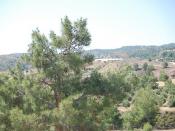A "Free Market Economy" is a system in which individuals rather than governments make decisions to do with economic activities and transactions, basically a free-for-all. But this free-for-all has consequences, the free market system has no guidelines or rules, no overseer and no one to tell you no. The main goal is money and greater profit for the stock holders. In the first part of this essay I will talk about three examples of the free market economy and its resulting environmental legacies to the world as a whole.
The first example of the free market economy at work is the world's fishing policy. According to United Kingdom Sea Fisheries Statistics the annual world catch of fish rose to a peak in 2000 at 78.6 million and fell to 72.5 million in 2003. Stocks of Cod have already collapsed in Newfoundland and are near collapse in the North Sea.
The reason for this over fishing is supply and demand, the consumer wanted fish, the price of the fish went up, more fishermen went out into the North Sea and the base stock of fish plummeted, in essence, demand outstripped supply.
The second example is the gradual poisoning of rivers and eventually the Sea from Nitrogen. This Nitrogen comes from massive amounts of Organo-Phosphate fertiliser used throughout the world to increase organic yields in the farming industry. Nitrates escape into the local water table, seep into the rivers and ultimately into the Sea. This causes toxic algae blooms and 'Red tides' in certain places around the world. The areas mainly affected are coastal bays such as Chesapeak Bay in North Eastern America, the Gulf of Mexico and Europe's Baltic Sea. All have run offs from the land masses that surround them and all have very little tidal movement to...


